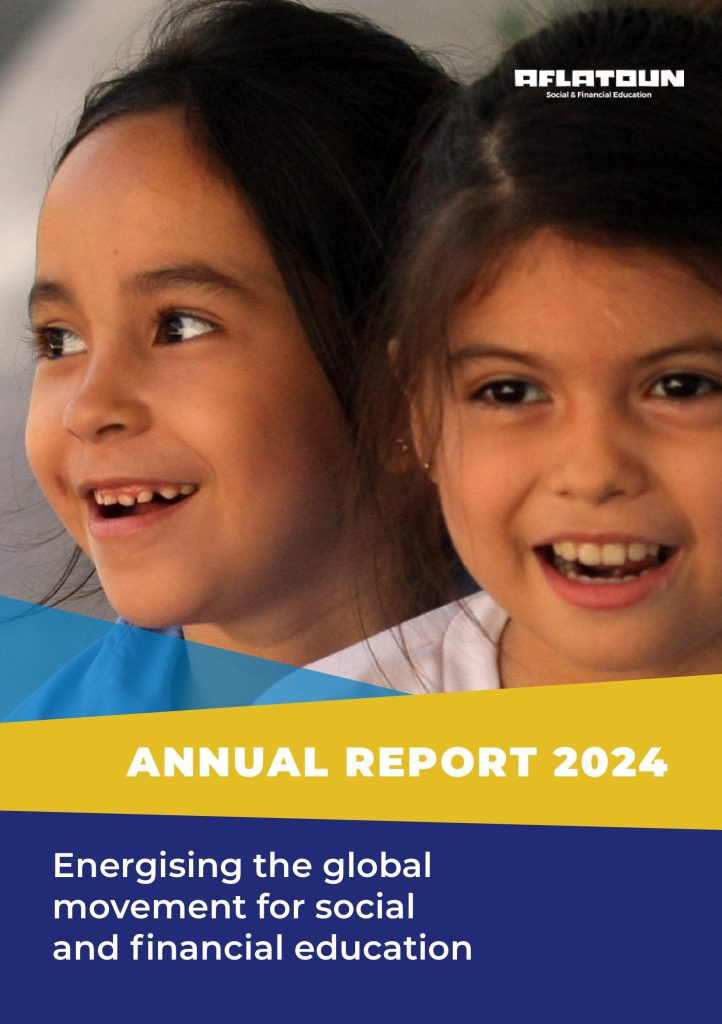The importance of social and financial education for sustainable living
2021 marked a momentous year for the global recognition of the need for climate action to combat climate change and environmental degradation. In this article, we explore how social and financial education programmes can be a vital tool for teaching young people to live sustainably, and contribute to saving our planet.
In August, the Intergovernmental Panel on Climate Change’s (IPCC) latest report declared the climate crisis to be a code red for humanity, whilst at COP26, governments committed to turning away from fossil fuels towards clean energy. Protecting the environment, and learning to live sustainably, has therefore never been so important. According to the UN, human activities have caused unprecedented changes to the biosphere, cryosphwere, atmosphere and ocean in recent years. Greenhouse gas emissions – primarily caused by burning fossil fuels, manufacturing, deforestation, transport and inefficient agricultural practices – are the main contributors to a rise in global temperatures which threatens to exceed 1.5 degrees in the next 20 years. Whilst these issues are shared globally, local communities face specific problems – such as pollution, loss of biodiversity, acidification, desertification – depending on their geographical location and local economy. Businesses have the potential to degrade the environment when profit is prioritised over protecting the environment. Teaching young people to understand their responsibility towards the earth – to adopt resource-efficient behaviour and sustainable entrepreneurship practices – is therefore a vital part of saving our planet.
Teaching about environmental responsibility and sustainable entrepreneurship
The social and financial education programs run by Aflatoun International – an international education NGO – equip vulnerable young people to think critically and understand their rights and responsibilities towards themselves, their communities, and the world. Teaching financially and socially sustainable practices have long been central to Aflatoun’s curriculum. Aflatoun teaches young people to save both resources and money, empowers them to live more economically and sustainably, and enables them to improve both their own lives, and their local environment.
As part of their financial education, Aflateen (aged 15-18) and Aflayouth (age 18+) students learn how to spot business opportunities through identifying important social problems and market gaps. The curricula then teach students to develop business ideas and plans which can solve these problems and address these gaps, before covering how to pitch to investors. Aflatoun teaches them about the benefits of social entrepreneurship – which prioritises creating social impact, rather than generating profit for shareholders – before supporting them in creating their own social enterprises.
Whilst learning about social responsibilities, Aflatoun students are also taught about climate change, and how their behaviour has the potential to harm or help the environment. After teaching students about how human habits damage the environment – through depleting non-renewable natural resources, polluting and burning fossil fuels – and about the devastation climate change causes to the weather, sea levels, food production and human health, the Aflatoun curriculum focuses upon cultivating sustainable mindsets. Students learn about the importance of sustainable development, and on a practical level, how to reduce their consumption of non-renewable resources, re-use where possible and recycle. In this way, students are able to draw links between how saving resources can positively impact them (both financially and socially), their communities and the planet.

Aflatoun’s sustainable enterprises
Across the world, students combine their knowledge of environmental issues and social entrepreneurship to create sustainable enterprises as part of Aflatoun’s social and financial education programmes.
In Zimbabwe, for example, Vimbainashe Mashonganyika and her social enterprise group from Rujeko Somalala High School started making doormats from fabric leftover from local tailors and seamstress shops. With an investment of 50 cents each, they sold these for 2 dollars per doormat. The students hope that in the future, they will be able to use the profits to support other students with their school fees.
In Ghana, Aflatoun’s business incubator training helped Francis Nketiah establish his own cooa purchasing business. Francis’s training was part of the MASO programme, which aims to tackle high unemployment rates amongst rural youth by creating employment opportunities for young Ghanaians in the cocoa industry. Through researching the cocoa industry in Ghana as part of this entrepreneurship program, Francis discovered that farmers in his local area typically had difficulty selling their harvest. Francis saw this problem as an opportunity: by setting up a cocoa purchasing business, Francis was able to become financially stable whilst helping local farmers prevent waste.

In Senegal, meanwhile, Aflatoun partner Centre Sportif FAYDA teaches children and young people about the importance of caring for their local environment, organising activities to clean and beautify it. Through their initiative ‘Agriculture in Schools’, CS FAYDA has created a garden, re-using biodegradable waste from the school and neighbourhood as compost. The garden, which is maintained by students, generates profits from selling produce which are re-invested into developing the school. Similarly, in Sri Lanka, 16 year old Mathisha Ranathunga started a potted plant business, re-using cans and coconut husks as pots and using garden waste for compost. She now makes a good income from selling these plants.
By teaching young people about their social rights and responsibilities, and equipping them with the ability to save money and resources, Aflatoun’s education programmes are successfully teaching youth to be conscious of the environment, and directing them towards sustainable entrepreneurship practices. Such practices are a critical part of protecting local environments, and contribute to the broader fight against climate change.
Author: Emily Hancock












